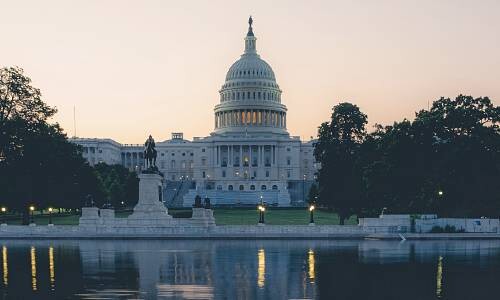
As the tax dispute with the U.S. drags on, Swiss banks find themselves vulnerable once again due to their business with Russian clients. The industry is now pushing all the harder to secure an open flank, research shows.
Was this the final farewell gift to America? At the start of December, Pictet paid nearly 130 million francs to settle with the dreaded U.S. Department of Justice (DoJ). As finews.com reported, the Geneva private bank made this move as the last of the «category-1» banks.
The Department of Justice (DoJ) launched investigations into these banks, including Credit Suisse, Julius Baer, and Zurich and Basel cantonal banks, for alleged aiding in tax evasion in the aftermath of the financial crisis. Under a U.S. program to settle the tax dispute, 80 other Swiss banks then transferred settlement payments overseas.
Further Difficulty
The total amount paid to the U.S. in the tax dispute was well over 4 billion francs.
But at the start of the month, the industry was not breathing a sigh of relief, as firstly, the U.S. tax dispute is still ongoing, as the confession of an ex-Swiss banker in the U.S. recently revealed. And secondly, Swiss banks have run into further difficulty with the USA since the Ukraine war broke out in February 2022: sanctions against Russia.
Serious Concerns
The Swiss Bankers Association (SBA) has confirmed the involvement of high-level officials in Switzerland in the matter, as stated in response to an inquiry from finews.ch. «The Swiss side is very closely following the discussions regarding Russian sanctions in the EU and the U.S.,» reports Felix Muff, head of legal & compliance. For example, the State Secretariat for Economic Affairs (SECO) is engaged in a dialog with foreign expert agencies on this matter.
The Swiss banks, represented by the umbrella organization, apparently have serious concerns about the financial center’s open flank: the gaps in the anti-money laundering apparatus, which are a thorn in the side of the U.S. in particular. This includes the risk of obfuscation as companies in Switzerland are not required to disclose their economic beneficiaries.
Urgent Need for a Law
From the banking industry’s perspective, it is important the draft law on strengthening the fight against money laundering is quickly implemented, Muff says. The Federal Council sent the draft for consultation last August, as reported by finews.ch.
«There’s a particularly urgent need to bring consultants such as lawyers, notaries, and trustees in high-risk activities within the regulatory orbit, and to set up a federal register of companies’ economic beneficiaries,» Muff stresses.
Level Playing Field
From the banks’ perspective, it’s also about ensuring a level playing field. The banks in Switzerland, Muff assures, already strictly implement the applicable sanction rules.
Despite that, they have been repeatedly criticized for their dealings with a «Russia connection.» But the belief that more could be done to increase pressure on Russia is not just confined to the U.S. This was clearly expressed by the U.S. ambassador (in German only) to Switzerland, Scott Miller, last March.
Helped With Evasive Dealings?
Another threat looms. In the U.S., the Helsinki Commission, a government agency created by Congress, accuses Switzerland of being a favored haven for criminal funds from Russia. The DoJ has been active in Swiss banking again since last spring. Among the lines of inquiry, the authority is investigating whether UBS and Credit Suisse helped Russian oligarchs bypass sanctions.
The two banking giants once played a major role in «Russian banking.» According to estimates by the SBA, Swiss institutions held around 200 billion Swiss francs of Russian assets before Russia launched its war of aggression. This compares with around 7.7 billion Swiss francs in assets that have been frozen in Switzerland, according to the latest assessments by Seco.
Massive Data Leak
UBS, Credit Suisse, along with Swiss private banks such as Julius Baer, Pictet, and Lombard Odier, have also been mentioned in connection with the Cyprus Confidential data leak in recent weeks. According to the revelations, there are countless connections between Russian oligarchs and Swiss banks. Since the start of the Ukraine war, scores of individuals mentioned in the data leak have also been sanctioned.
These reports are presumably also read in America – and this makes the said financial institutions vulnerable.
Next Country Exam Is Approaching
Given the circumstances, it seems wiser not to increase the vulnerable flanks any further. Switzerland, Muff says, currently lags behind international standards, which could hurt the next «country exam» by the Financial Action Task Force (FATF), the body responsible for setting standards, in 2027.
«Currently, the Swiss apparatus for combating money laundering still has gaps in the regulation of consultants, compared with internationally recognized standards and the relevant requirements of the FATF. The proposed provisions therefore aim to meet international standards.»
Expected to Take Further Pains
So Swiss banks are expected to take pains to tighten the rules in combating money laundering. Muff explains: «Integrity and reputation are and will continue to be key components of a successful financial center.»





